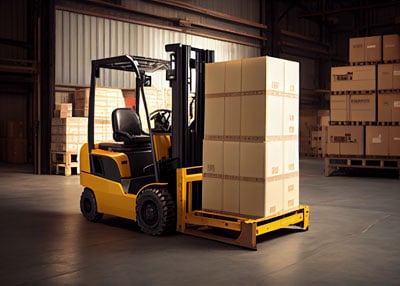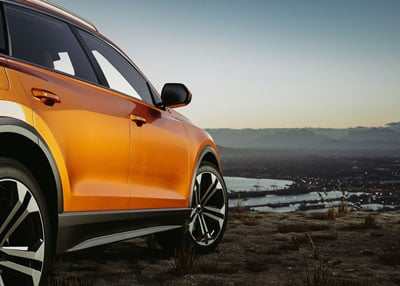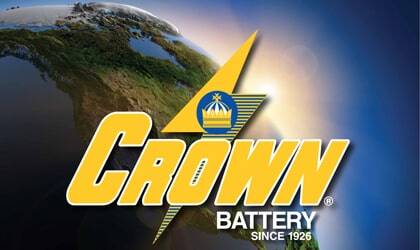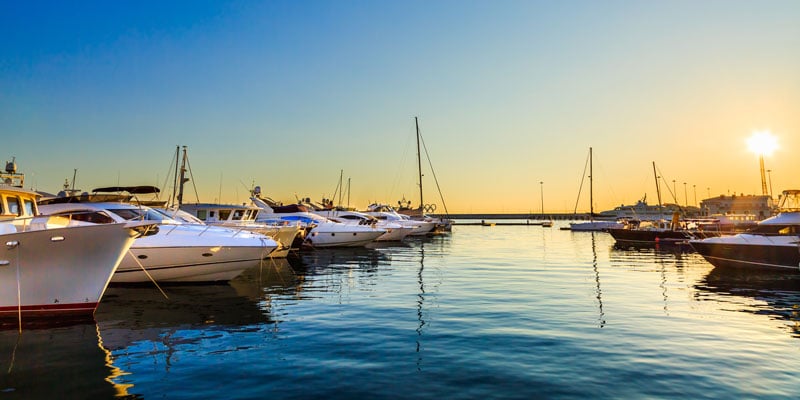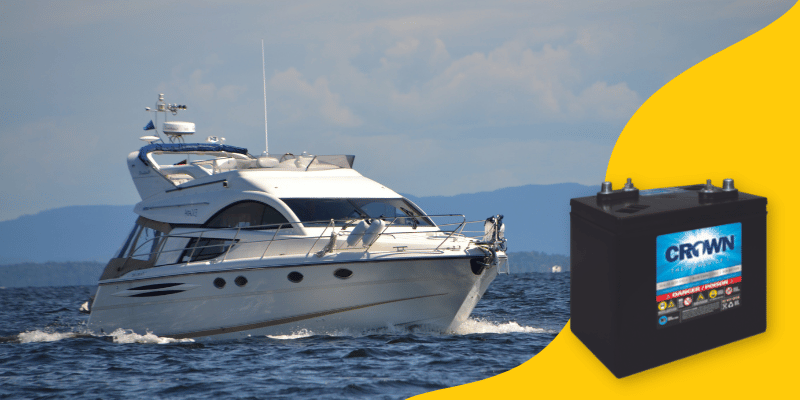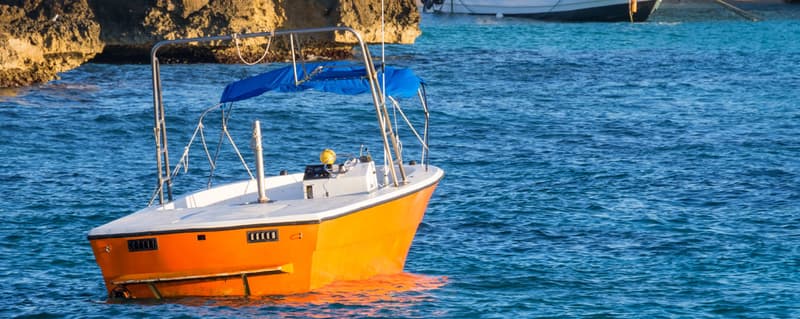Whether you’re fishing or exploring open waters, you want to spend less time on maintenance and more time afloat.
And AGM batteries can help — if you know their pros and cons.
In this post, you’ll discover whether AGM batteries are right for your boat, including:
- What makes AGM batteries different
- Pros and cons
- Which boat batteries protect waterways
- The skinny on battery weight
- Made in the USA — or outsourced to the cheapest bidder?
- And more
Last, you’ll hear how a professional fisher, charter captain, and boat dealer choose their marine batteries.
What makes AGM batteries different — and why are they near-zero maintenance?
AGMs were first developed for military and aerospace, where extreme reliability and near-zero maintenance are critical.
Today, AGM batteries and their “cousins” (lead-acid batteries) power billions of vehicles, millions of boats, and hundreds of other applications.
Like all batteries, they store energy in a chemical form — and that chemical energy gets converted into electricity.
AGM and lead-acid batteries use an energy-storing material pasted into metal lattices called “plates.”
In AGM batteries, a glass mat separator moves an electrolyte between energy-storing battery plates. Because AGM batteries hold energy in a “dry” state instead of as a liquid, the electrolyte won't spill out — and there’s no watering.
Let’s look at some other pros and cons:
| AGM Pros: | Cons: | |||
|
|
With the basics out of the way, let’s look at what matters to you on the water:
Sustainable batteries are recyclable — and protect waterways
Crown Battery’s AGM and lead-acid batteries are already 99% recycled — more than an aluminum can (source: EPA’s “Advancing Sustainable Materials Management: 2017 Fact Sheet”
By contrast, only 5% of lithium-ion batteries are recycled; the rest are landfilled (Source: Chemical & Engineering News).
Through our 19-step water treatment and filtration process, we can recycle hundreds of thousands of gallons of water — and clean water. State and local officials closely monitor our water quality, and we’ve achieved perfect scores since our program’s start in 2010.
Lower water usage is better. NOTE: Production increased during this time.
To learn more about how we’re protecting our environment and waterways, click here.
Made-in-USA batteries make your life easier
It’s easy to outsource batteries to overseas manufacturers — and the lowest bidder often wins.
The result is less reliability, lower quality, and poorer support.
You may even notice that entire types of boat batteries are only designed or manufactured overseas.
We’ve taken the opposite approach.
Crown Battery was founded in 1926, and our batteries are 100% US-Engineered and Assembled. Every one of our recyclable lead-acid batteries comes from our ISO 9001:2015-certified plant in Fremont, Ohio, USA.
In addition, we build batteries using approximately 80% recycled materials. Our plant incorporates solar panels, high-efficiency robotic welding, and a highly-skilled workforce.
And while Crown4 batteries aren’t the cheapest, they’re built to last, save you money over time, and ensure you have more fun time on the water.
Speaking of making batteries last:
Avoid prorated warranties
When companies prorate battery warranties, you lose. For instance, if your “5-year” batteries are prorated and fail in year four, you’ll only get 20% off your next batteries.
So instead of a prorated warranty, look for a 5-year bumper-to-bumper warranty. That way, if something goes wrong, that’s covered, and you’ll get a full replacement.
And be sure your boat engine’s warranty covers your battery type; in some cases, engine manufacturers may deny component failure claims involving LI batteries.
Finally, read this article to find out how to protect yourself — and avoid costly warranty claims. (These tips apply to all batteries.)
The (baby) elephant in the room: Let’s talk about battery weight
We’ll be the first to admit it: lithium-ion and LiFePO batteries have a higher energy density than AGM and recycled lead-acid batteries.
Higher energy density increases your chances of thermal runaway and fires.
But LI and LiFePO batteries also weigh less.
Let’s look at what that means for you.
According to Boating Republic, a bass boat with fuel and equipment weighs an average of 2,700 pounds (1,224 kg.). Bass boats hold approximately 2,000 pounds (550 kg.)
Let’s split the difference and say you have the average boat but only 1,000 pounds (550 kg.) of people, gear, etc.
With a typical battery setup, lithium-based batteries would be 160 lbs. (72 kg.) lighter.
3,540 lbs. (1,606 kg.) (boat with LI or LFP)
/ 3,700 lbs. (1,678 kg.) (boat with AGM)
DIFFERENCE: 4.33% lighter total boat weight — and more than double the cost.
Now, if weight is everything to you — we get it.
But if you’re looking for a Made-in-the-USA battery that’s proven reliable, backed by almost 100 years of happy customers and honoring warranties, and 99% recyclable — we’re confident you’ll love boating with Crown AGM batteries.
Don’t take our word for it — ask experts and boaters why they choose Crown Battery:
“I’m using my trolling motor nonstop for 12-14 hours a day, 150 days a year, in the winter and the peak of summer. Those conditions kill less-rugged, old-style batteries - and in a tournament, if your trolling motor isn’t running, you can’t compete.
Crown batteries are perfect for the type of fishing I do. They’re rugged, they’re made in the USA, and they’re a great value. If Crown batteries are good enough for me to compete against the top 100 bass anglers in the world, then they’re good enough for anyone.”
- Michael Simonton,
Bassmaster Elite Series Tour Pro
***
“If you’re jumping into fishing and want a reliable battery with even better service, you can depend on Crown.
They’re rugged and easy to use, too. You just charge the batteries up each night after fishing, and you’re good.
[And] for me, I’m proud that my batteries were designed and constructed here in the USA. I want to purchase dependable products from a company that supports their community.”
- Grant Gallagher,
Lifelong Fisher and 2nd-Grade Teacher - Fremont, Ohio, USA
***
“Other battery manufacturers approach me all the time — lead-acid, AGM, lithium-ion, lithium iron phosphate. But I have just shy of a thousand boats within a five-mile radius, and we process a fair number of batteries. I can’t just try a brand, send it out, and have 50 or 60 boats come back and say they hated the batteries or the batteries messed something up. Reliability, predictability, and customer service are key for me. And Crown has been really good for us.”
- Glen Matthews
Owner of Port Whitby Marine Supplies - Whitby, Ontario, Canada
***
“When a thunderstorm's rolling through and you have zero visibility — and you need GPS to get you home… Crown Batteries don't fail. That makes a huge difference for peace of mind for me and my clients.”
- Captain Chris Clemons
Professional Walleye Guide on Lake Erie and Owner of Lakeland Charter Service - Ohio, USA
What’s next? If you’re ready for more time on the water, ask your authorized boat and outboard dealer for battery recommendations.

